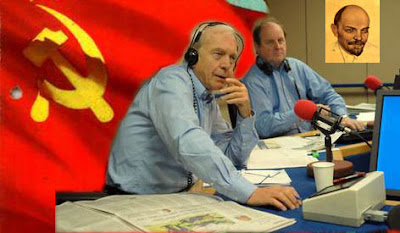according to Guardian blogger and media commentator Roy Greenslade, blogging about a new broadcast monitoring service called Newswatch that:
has emerged from a research body founded in 1999 that famously carried out an analysis of the BBC’s coverage of the European Union and found it unduly biased in favour of the EU.
…and undertakes to:
use a range of robust analytical tools to study the British broadcast media. Our methodology is firmly based on established academic principles utilising core quantitative and qualitative research techniques.
An interesting approach indeed, because there are lots of different types of bias, ranging from the obvious to the subtle (but nonetheless insidious) that is much harder to pin down and expose, particularly where the BBC doesn’t realise it is being biased (institutional bias anyone?).
One of the problems with keeping tabs on the BBC is that there is just so much of it – the BBC news factory churns out upwards of forty-eight hours worth of stuff every day – far beyond the ability of any individual, or even a group like Biased BBC, to keep track of, which often leads to complaints about bias being brushed aside with the smug reassurance that:
If only you’d listened to everything on that topic you’d find there’s nothing to worry about…
Sound familiar? Enter Newswatch!
Newswatch spent fourteen weeks prior to the European Council meeting in June monitoring Radio 4’s Today programme for balance in their coverage of the run up to the EU reform treaty (i.e. the revised EU constitution after the application of spin) – a daunting task involving minute by minute analysis of over 240 hours of material.
You’d expect that Today, a daily three-hour long flagship BBC news programme, would provide comprehensive coverage of a topic as important as the EU reform treaty – they probably even think they did – but reading the summary version of Newswatch’s first report (the full report apparently contains over eighty pages of analysis) it turns out that Today’s coverage of the EU Reform Treaty was far from comprehensive, and that what coverage there was was biased, unimaginative and plain sloppy.
Some highlights from the Newswatch summary:
- This was a period of major EU activity, But coverage of EU affairs on the Today programme
slumped to a record low of 2.7% of available airtime for most of the 14 weeks, despite high profile
promises by BBC news management in the wake of the Wilson report that EU-related
output would be boosted, and claims by the Director General that it has been; - On June 23, the day that agreement was reached, Today devoted four times more airtime to
the Glastonbury Rock Festival than to coverage of the eurosceptic case against the revised
working arrangements. Coverage of the eurosceptic case amounted to only seven interviews (22
minutes and 40 seconds of airtime) over the entire 14 weeks; - UKIP, a main conduit of views about withdrawal and further growth of EU powers, was not
asked any questions at all during the survey about the revised working arrangements. Remarks
by UKIP spokesmen in four appearances by the party occupied only around five minutes out of
238 hours of programming. On the sole occasion when there was a debate about UKIP concerns
– relating to whether the EU brought benefits to the UK – the UKIP spokesman was treated
unfairly; - BBC correspondents, in their reporting of the moves towards the new treaty, regularly
articulated the negative sentiment within the EU about Britain’s reservations, but very rarely
explained or even mentioned eurosceptic concerns. On some occasions, BBC Europe
correspondent Jonny Dymond, the biggest contributor to Today’s coverage of the revised treaty
document, appeared to push the EU perspective on events disproportionately, to the point of
bias; - The case for a referendum on the new working arrangements – which, according to polls was
supported by 80% of the UK electorate – was handled sparsely, unfairly and ineptly. There
were only two dedicated interviews on the topic. In each, there were elements that
contravened BBC editorial guidelines. James Naughtie treated Ruth Lea, the guest who put the
case for a referendum, more toughly than Professor Jo Shaw, who argued against one being
held. - Coverage of EU affairs in general in the 14 weeks of the survey was mainly outside peak programme listening hours, with evidence that negative EU stories were regularly placed in the 6am-7am slot.
There’s more good stuff in the Newswatch summary report, and I expect a great deal more in the full report. It will be interesting to see how this rigorous approach to analysing the BBC’s output develops, and how well the BBC and other news outlets report the findings of such meticulous analysis of our national broadcaster’s flagship radio programme.




